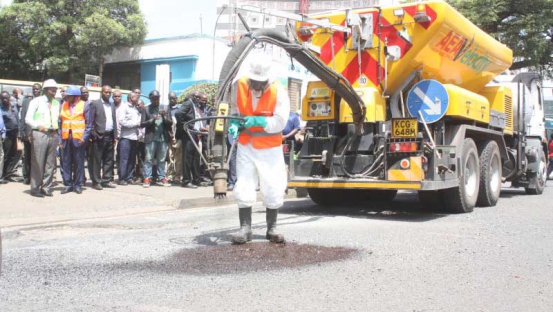×
The Standard e-Paper
Stay Informed, Even Offline

According to the county executive for Transport, the new equipment will be acquired at a cost of Sh50 million each
Bad roads in the city could soon become a thing of the past after the county government announced plans to buy pothole patching machines.